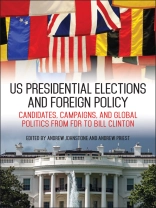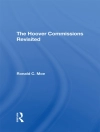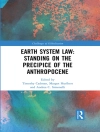While domestic issues loom large in voters’ minds during American presidential elections, matters of foreign policy have consistently shaped candidates and their campaigns. From the start of World War II through the collapse of the Soviet Union, presidential hopefuls needed to be perceived as credible global leaders in order to win elections—regardless of the situation at home—and voter behavior depended heavily on whether the nation was at war or peace. Yet there is little written about the importance of foreign policy in US presidential elections or the impact of electoral issues on the formation of foreign policy.
In US Presidential Elections and Foreign Policy, a team of international scholars examines how the relationship between foreign policy and electoral politics evolved through the latter half of the twentieth century. Covering all presidential elections from 1940 to 1992—from debates over American entry into World War II to the aftermath of the Cold War—the contributors correct the conventional wisdom that domestic issues and the economy are always definitive. Together they demonstrate that, while international concerns were more important in some campaigns than others, foreign policy always matters and is often decisive. This illuminating commentary fills a significant gap in the literature on presidential and electoral politics, emphasizing that candidates’ positions on global issues have a palpable impact on American foreign policy.
विषयसूची
A Godsend to the Country? Roosevelt, Willkie and the Election of 1940
FDR’s Closest Contender: Thomas E. Dewey and the 1944 Election
Containing Challenges: The Triumphs of Harry Truman in the Presidential Election of 1948
Confirming the Cold War Consensus: Eisenhower and the 1952 Election
When Public Opinion Does Not Shape Foreign Policy: Suez, Hungary, and Eisenhower in the 1956 Presidential Election
Leadership Experience in the Cold War: Cuba, Khrushchev, and Quemoy-Matsu in the 1960 Presidential Election Campaign
The Virtues of Moderation: Foreign Policy and the 1964 Presidential Election
Every Way Out: Vietnam, American National Identity, and the 1968 Presidential Election
The Peace Candidate: Richard Nixon, Henry Kissinger, and the Election of 1972
Dealing with Defeat: Gerald R. Ford, Foreign Policy, and the 1976 Election
The Domestic Politics of War and Peace: Jimmy Carter, Ronald Reagan and the Election of 1980
1984, Regional Crises and Morning in America: The Predawn of the Reagan Era
Ending the Cold War Without Debate: Foreign Policy and the 1988 Election
Internationalism Challenged: Foreign Policy Issues in the 1992 Presidential Election
Conclusion
लेखक के बारे में
Andrew Priest is senior lecturer in history at the University of Essex. He is the author of Kennedy, Johnson and NATO: Britain, America and the Dynamics of Alliance, 1962–68.












